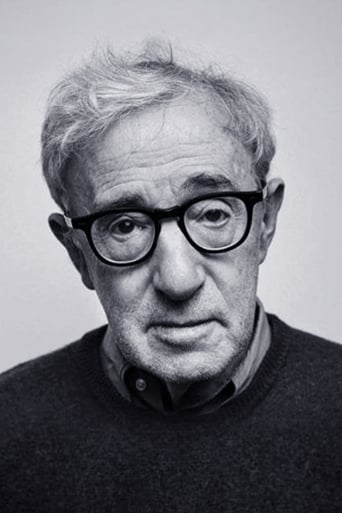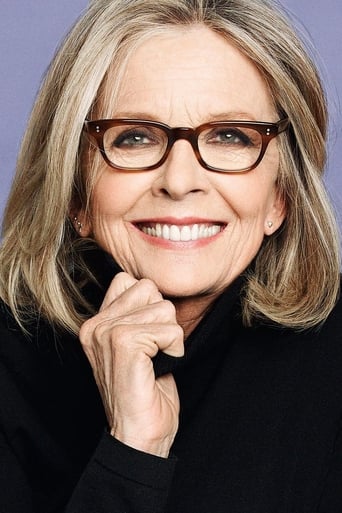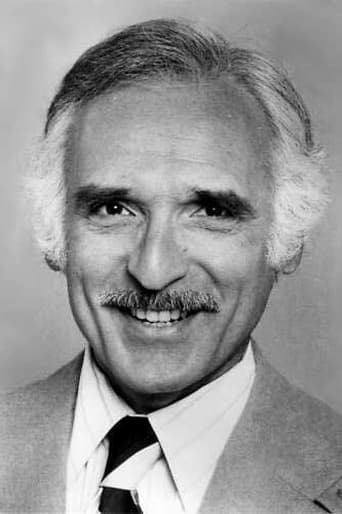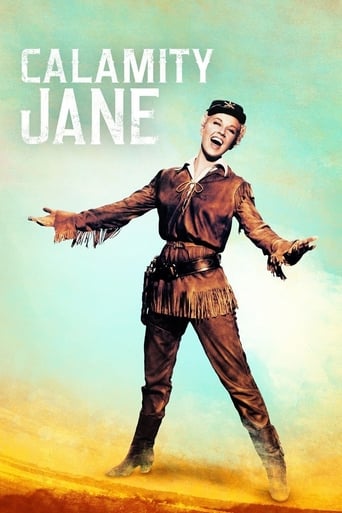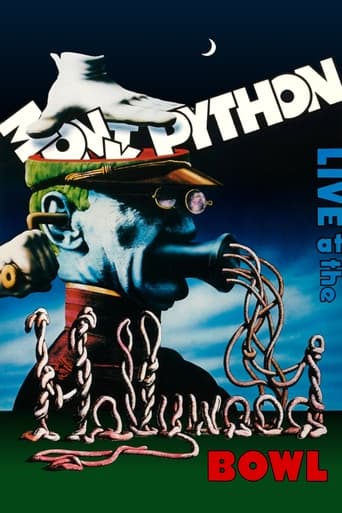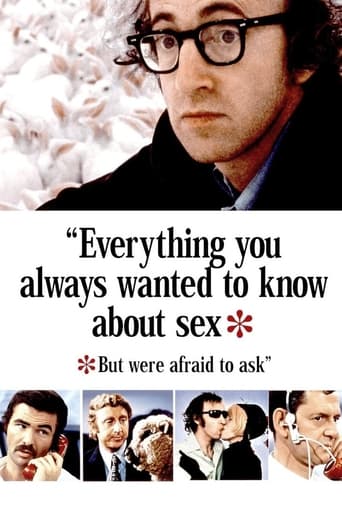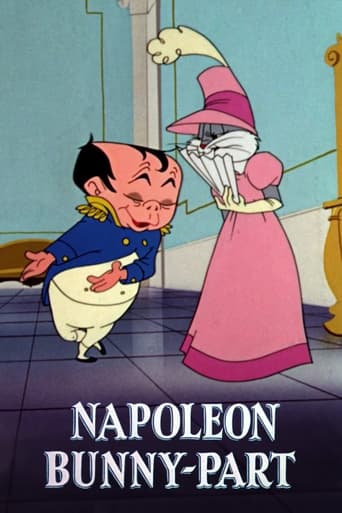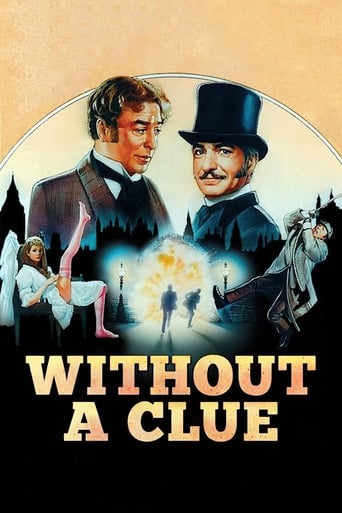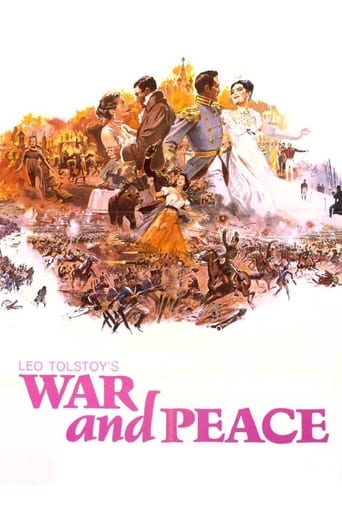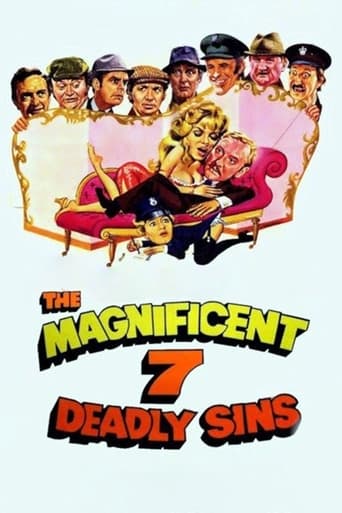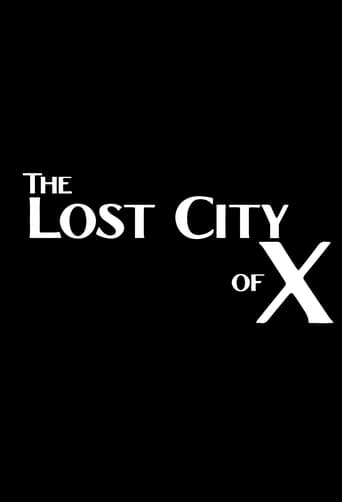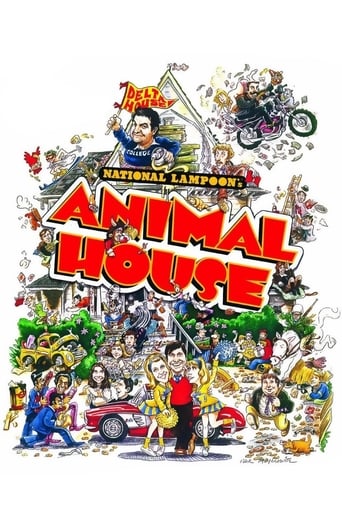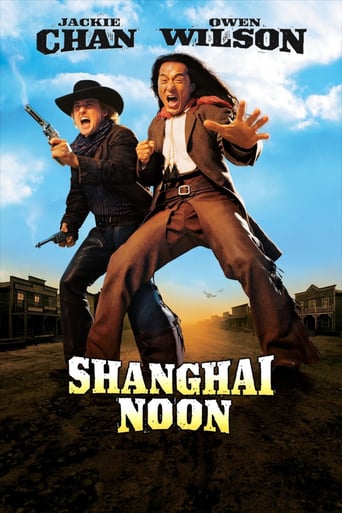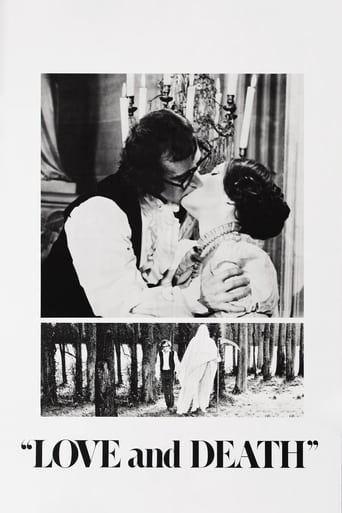
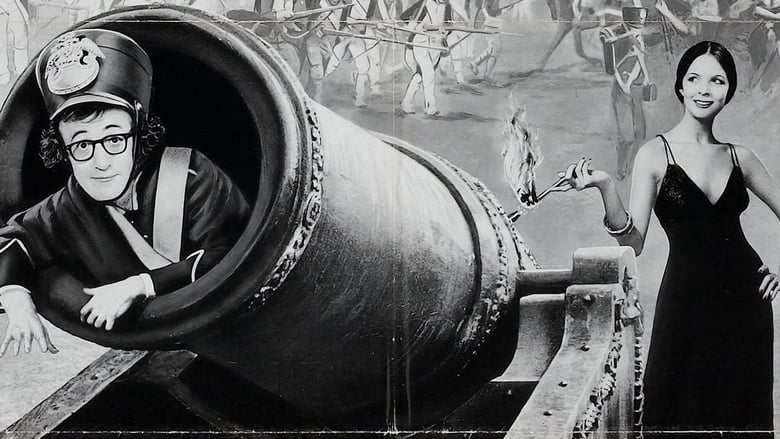
 Watch Now
Watch Now





Love and Death (1975)
 Watch Now
Watch Now





In czarist Russia, a neurotic soldier and his distant cousin formulate a plot to assassinate Napoleon.
Watch Trailer
Cast


Similar titles
Reviews
Touches You
It's an amazing and heartbreaking story.
This is one of the few movies I've ever seen where the whole audience broke into spontaneous, loud applause a third of the way in.
Story: It's very simple but honestly that is fine.
Tolstoy may have War and Peace, but it pales in comparison to the sweeping gravitas of Allen's Love and Death, which tackles two even more universal issues which plague us all. In this film, Allen shows his remarkable talent at engaging with grander, more immediate themes that his earlier comedies but still have that magic touch which turns any situation into hilarity. The plot is a parody of the dense, high- minded Russian epics, in particular those of Tolstoy and Dostoyevsky. Allen's neurotic, wimpy type is dropped right into the setting, Russia during the Napoleonic Wars, where all the young men are practically jumping out of their skin to serve their motherland, whilst Boris would rather sheepishly sneak away and work on his butterfly collection. Allen's physical comedy is on show here in brilliant form; most notably in a montage of all his army incompetencies and goofs, his schoolboy wooing tactics of a Countess, and perhaps the most delightful of them all, a muted, sped up slapstick sequence involving Allen, Keaton and a guard they are trying to knock out with an empty bottle, which recalls the silent film masters and their antics. He uses the frame (see the bickering and slap-fighting of Napoleon and his double) and the edit (six minutes later the Countess' room is strewn with overturned furniture like a thief had been through it) to great effect. The film tackles all the dense philosophical ideas of the Russian literature it parodies with a bemused perspective. Boris sticks out like a sore thumb amongst the gruff and uncivil Russian environment and spouts streams of existential jargon that become so complex and redundant that they lose all meaning. He constantly spars verbally with her cousin Sonja, the Anna Karenina figure, who is also embroiled in a web of social anxieties and troubled relationships. Keaton has a remarkable knack for her deadpan delivery of the absurd, further pushing these situations into hilarity: "I'm twenty eight and he's eighty one." When that man drops dead suddenly in her moment of faux triumph, she quickly decides on another lover, and the film treats it as if they were destined for each other, despite his tendency to talk about the herring industry very seriously and her tendency to sleep around vicariously (the tender deathbed moment interrupted by exaggerated coughing and clearing of throats at the mention of her 'purity' is gold). Watching this with the knowledge of the prevalence of the Allen-type about to boom next with Annie Hall and so on is extremely valuable. Here Allen has the self-awareness of the pitfalls of his intellectual character and has perfectly emphasised them in a context that asks for the opposite. He is not the heroic soldier but rather stumbles onto an opportunity which covers his chest with medals. His awkward aversion for violence is mistaken for the highest of nobilities (A similarly amusing pistol duel that year from Barry Lyndon also mocks the prissy, formal nature of these life-and-death shootouts). He is an intellectual like so many before and after him, and sensual, and as spiritual as he can be, but never really takes life seriously because there is an existential meaningless about it. Life's cruel twist is that he has this sort of spiritual awakening as he is jailed, a Dostoevskian epiphany, and as just as he decides to have found his meaning for living, God stands him up. And so he dances on along with Death. Very funny indeed, in a cruel and ironic way.
You can almost imagine the room as Woody Allen sits down with the outline that his follow-up to 'Sleeper' is going to be a satire of 19th-century Russian literature with nods to Bergman and Eisenstein, featuring direct quotes from little-known Russian philosophers and the music of Prokofiev."But... you're still going to wear the funny glasses and be making jokes about New York restaurants, right?" "Well, yes, naturally..." Love and Death is certainly not as obviously funny as Sleeper was. There are still many slapstick moments but they are less drawn out and the film as a whole seems to rattle by at great pace. The chances are you're going to watch it and, like me, think 'well, that was... unusual', then spend some time researching it to discover exactly what it was that you just watched. And then you'll watch it again. And then again. The more of the background references you start to fill in, the more Love and Death rewards you. Some is parody, some more like tribute. Scenes are recreated from Battleship Potemkin and Persona, music is lifted from Alexander Nevsky and the grim reaper makes an appearance after The Seventh Seal (but before Bill & Ted's Bogus Journey put the finishing touch on that joke). Pieces of classic Russian novels come into play directly (The Brothers Karamazov, War & Peace). The jokes run deeper still. Sergei Prokofiev is credited with music under S. Prokofiev to match Russian credit sequences. Woody and his father exchange dialogue which has been constructed entirely from Dostoyevsky titles. The level of immersion is incredible and complete... you could almost describe the film as a serious comedy. Allen even reprises himself; just as Diane Keaton sings the rebel song from 'Bananas' during 'Sleeper', we have throwbacks to the 'Bananas' dream sequence both in Woody being hoisted on a cross for a quick one-liner and in the dream of the coffins.Much of the comic interplay between Allen and Keaton carries through from 'Sleeper'; the scene of the pair posing at the door as Don Francisco and his sister recalls the operating theatre, but here they are taking on more weighty characters which allow the very genuine acting talents of both to emerge. Many of the set-pieces require precise timing, delivery and expression, and it is always delivered. Allen is a ball of nervous energy, but more focused than before. Keaton is freed from the idiot chains and plays the whole comic spectrum - her earnest deadpan delivery of parodies of the dense Russian prose are especially memorable. Supporting actors produce comedy gold too, whether it's James Tolkan's concerns about the British development of beef Wellington, Father Nikolai's sketches of Russian Jews, the soldier with the 'lock' of his wife's hair ("Careful, don't drop it"). In its rich tapestry of characters it almost becomes that which it parodies.Much of Love and Death was filmed in Budapest, other parts in Paris. Woody Allen is synonymous with New York, and this filming trip would be his last away from the Big Apple for more than 20 years. While in Budapest (which was occupied by the Red Army), he refused to drink the water and brought all of his own food and water, which enabled him to keep his feet when everyone else was stricken with dysentery. The weather continually worked against the shooting schedule, one of the actors had both legs broken in an accident, some negatives were destroyed and scenes had to be re-filmed. Many of the actors didn't speak English, which was necessary for much of the early humour; we have a whole family who are very eastern European in appearance and manner, and we have Woody as his anachronistic self.The danger in talking about this film for any length of time is that you will end up just listing off great scenes and jokes. Sleeper, as great as it is, was a slapstick comedy that occasionally had to be filled out to fill a feature-length slot. Here, we feel like everything has been condensed in order to squeeze down to a feature length, and that every joke, every sight gag, every parody is like the best selection from a larger selection; a greatest hits parade. Go, enjoy, and enjoy again - you won't be sorry you did.
I can't imagine another director in their prime tackling the Russian mindset, their war and poverty with as much silly and reckless abandon all in the name of comedy without pushing viewers over the edge. Woody pontificates to the audience turning a spiritual ethos on its head and still making some sense while parodying Russian literature while translating the literal into the parlance of our times. Diane Keaton's funniest movie ever. She completely delivers line after line to keep the plot moving while Woody does his nervous comedy routine with music to warm the cossacks! The bits are all very straight forward even if the literature they are mocking is above my pay grade.
If you ever wondered about the missing link between Woody Allen's early slapstick comedies and his later, heavier stuff, this is it. While it's still very much a comedy, "Love And Death" is noticeably mellower, slower, more mature than Woody's earlier films, with more attention paid to the story and to the general production. It's also more philosophical and theological, as Woody constantly questions the existence of God ("I wouldn't want to blow my brains out and THEN learn that they found something up there!"). It does get too verbose for its own good at times, and some parts just don't come off (his monologue about Socrates, for example). But "Love And Death" also contains some of the most unforgettable visual gags (his military training) and classic punchlines ("You are the greatest lover I've ever had" - "I practice a lot when I'm alone!") of Allen's career. And Diane Keaton, besides being great to look at, proves once again that her contribution to Allen's movies is invaluable - Woody himself once again, to an even larger extent than in "Sleeper", trusts her with some comic scenes without his presence, which she pulls off fantastically ("I could have made love to you more often....once even"!!). And Woody's music selections (this time it's Prokofiev) continue to be excellent. *** out of 4.


